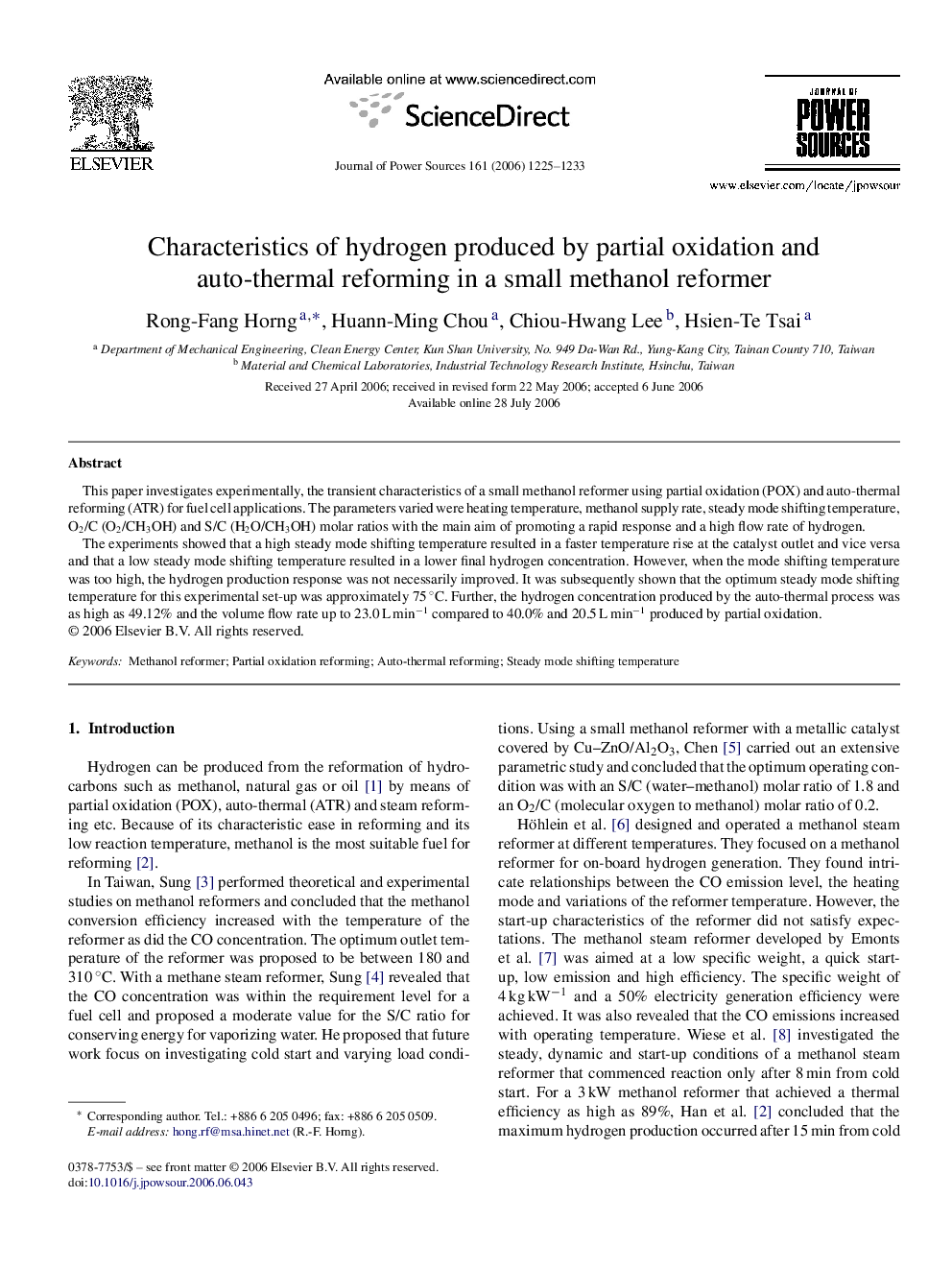| Article ID | Journal | Published Year | Pages | File Type |
|---|---|---|---|---|
| 1292073 | Journal of Power Sources | 2006 | 9 Pages |
This paper investigates experimentally, the transient characteristics of a small methanol reformer using partial oxidation (POX) and auto-thermal reforming (ATR) for fuel cell applications. The parameters varied were heating temperature, methanol supply rate, steady mode shifting temperature, O2/C (O2/CH3OH) and S/C (H2O/CH3OH) molar ratios with the main aim of promoting a rapid response and a high flow rate of hydrogen.The experiments showed that a high steady mode shifting temperature resulted in a faster temperature rise at the catalyst outlet and vice versa and that a low steady mode shifting temperature resulted in a lower final hydrogen concentration. However, when the mode shifting temperature was too high, the hydrogen production response was not necessarily improved. It was subsequently shown that the optimum steady mode shifting temperature for this experimental set-up was approximately 75 °C. Further, the hydrogen concentration produced by the auto-thermal process was as high as 49.12% and the volume flow rate up to 23.0 L min−1 compared to 40.0% and 20.5 L min−1 produced by partial oxidation.
